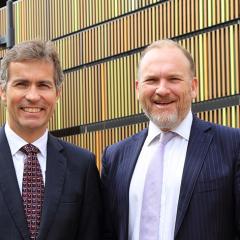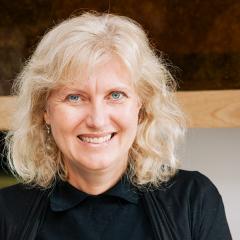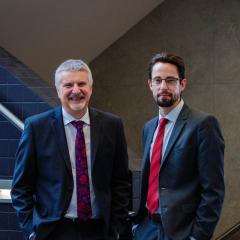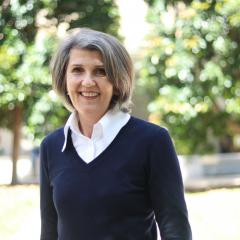Professor Luke Connelly is Acting Director of the UQ Centre for the Business and Economics of Health (CBEH) and Affiliate Professor with the Poche Centre for Indigenous Health. His main research interests are in health and insurance economics, and the effects of institutions on incentives and behaviour.
As a recognised leader in health economics research, what areas are you currently focused on?
We’re currently focused on the use of large administrative health system datasets across a range of topics including Indigenous health, chronic kidney disease, referral and service use patterns, and questions of appropriate and cost-effective care. Much of this work is based on Queensland data, but I’m also working with colleagues at the University of Bologna in Italy on a large linked data set that provides us with data on about 4.5million individuals over a period of 11 years.
I’ve also been working with colleagues at UQ on insurance market problems, and with a colleague in Western Australia on a large Australian panel (longitudinal) dataset to examine the relationship between macroeconomic variables and the mental health of immigrants to Australia. Interestingly, the latter work shows that exchange rate movements and other macroeconomic indicators do affect the mental health of immigrants.
What are your goals as Acting Director of CBEH?
The main goal has been to recruit excellent personnel and to start building a strong centre profile. Thankfully, we’ve had enormous success in the recruitment of excellent staff including four truly outstanding Postdoctoral Fellows to date, as well as Professor Brenda Gannon who we recruited from the University of Manchester.
In February, we will welcome Professor Steve Birch who joins us from McMaster University as the Director and Taylor Family Chair. Professor Birch is a huge name in health economics, and recruiting him to UQ is a major boon for the centre.
What key issues is the centre addressing?
We’re working on issues that span the age spectrum from child health through to adult health and ageing. One of Professor Gannon’s areas of expertise is in ageing and dementia and she is involved in some large international projects on that topic.
One of the ‘Closing the Gap’ initiatives we are working on in Indigenous health is to reduce the rate at which Indigenous people discharge against medical advice (DAMA). The Australian rate for DAMA is rising and is 10 times greater for Indigenous than non-Indigenous Australians. The reality is that we don’t really know why that is. Cultural matters may play a role, but it may also be that socio-economic status is a confounding factor. We’re working to discover ways to reduce DAMA rates for Indigenous and non-Indigenous people.
We’re also working on improving efficiency and identifying the sources of market failure in insurance markets, examining the drivers of health expenditure growth, conducting work on the economics of genetic testing and genomics, and looking at the effect of injury compensation (such as Worker’s Compensation) on health outcomes, to name just a few.
We cover quite a vast array of areas, not only within the centre, but across UQ. This creates a lot of opportunity for innovation and we’re only just getting started in that regard, really!
How do you hope the centre’s research will influence health economics in 2018 and beyond?
CBEH is the only centre in Australia that is dedicated to the business and economics of health. Our vision is to be recognised as the leader in health economics and health business in the Asia-Pacific Region within five years. To do that we will need to continue to develop our international research and program delivery profile.
In the near-term we hope to establish strong research and capacity-building collaborations with health services in Australia and Queensland, in particular. We are currently engaging health services locally and plan to assist them through collaboration to build capacity in health services innovation and evaluation.
What work of centre researchers has had an impact in health economics?
The work we’ve done on disability, health and labour force participation, as well as some of the work we’ve done on child health and income has had an important influence. Some of the work we’ve produced has changed health policy and influenced road safety policy.
Much of the work we’re doing now is also being published in some of the best journals in the field. Economics, as a discipline, tends to have a long citation half-life, meaning that the impact of some of what we’ve just produced is likely to start to become apparent in about five years time. Given the calibre of the journals we’re publishing in currently, the centre will have a strong influence on the field in years to come.
How significant was the Taylor family donation to the establishment of CBEH?
The $1.25 million donation Fidelity Worldwide Investments Head of Australian Equities Paul Taylor and his wife Sue donated to CBEH was instrumental to establishing the centre. This generous gift has allowed us to begin conducting important research across business, economics and health, and to start building important partnerships with providers of health services nationally and internationally.
It has also assisted us to develop a critical mass of established researchers and next-generation educators in health economics. These researchers and educators will lead the nation to address one of Australia’s most pressing problems, which is providing affordable and sustainable healthcare.
Both Paul and Sue are alumni of UQ. Sue is a psychology graduate and Paul is a commerce graduate.
The Taylor Family donation adds to the philanthropy already raised as part of UQ’s $500 million philanthropic campaign. The campaign target is to raise $500 million by the end of 2020. UQ’s Not If, When, campaign to Create Change, aims to change lives within our community and around the world by encouraging support for research, disadvantaged students and teaching leadership. The extraordinary support of philanthropists such as the Taylor family who are driven to make the world a better place are pivotal to the impact UQ can have on improving healthcare for future generations.
Words: Kirsten O’Leary





